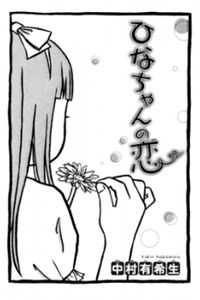Summary

Aleph
by Paulo Coelho
Transforme sua vida. Reescreva seu destino.
Num tom franco e extremamente pessoal, Paulo Coelho relata sua incrível jornada de autodescoberta. Como o pastor Santiago de seu grande sucesso O alquimista, o escritor vive uma grave crise de fé. À procura de um caminho de renovação e crescimento espiritual, ele resolve começar tudo de novo: viajar, experimentar, se reconectar às pessoas e ao mundo.
Ao embarcar para a África, depois para a Europa e, por fim, cruzar a Ásia pela ferrovia transiberiana, Paulo busca revitalizar sua energia e sua paixão. Mas nem pode imaginar que surpresa essa peregrinação lhe reserva.
Ele conhece Hilal, uma jovem e talentosa violinista, e descobre que ela foi sua grande paixão numa vida passada, mas que ele a traiu de maneira tão covarde que, mesmo 500 anos depois, isso o impede de ser feliz. Juntos, os dois se lançam numa viagem pelo tempo e o espaço, abrindo-se para o amor, o perdão e a coragem de enfrentar os desafios da vida.
.
Read
Aleph on http://kissnovel.net
Martial Peak Reviews
Aleph by Paulo Coelho is a profound exploration of self-discovery, spirituality, and the intricate tapestry of love that transcends time. In this deeply personal narrative, Coelho invites readers on a journey that mirrors his own quest for renewal and understanding, much like the journey of Santiago in his celebrated work, O Alquimista. However, while Santiago's journey was one of external adventure, Aleph delves into the internal struggles of faith and identity, making it a compelling read for anyone seeking meaning in their own life.
The story begins with Coelho himself, who finds himself in a crisis of faith. This is not merely a plot device; it is a reflection of the author's own experiences and struggles. The candidness with which he shares his vulnerabilities is one of the book's greatest strengths. Coelho's writing is imbued with a sense of honesty that resonates deeply with readers. He acknowledges his fears, doubts, and the overwhelming sense of stagnation that many people face at various points in their lives.
In search of revitalization, Coelho embarks on a journey that takes him from Africa to Europe and finally across Asia via the Trans-Siberian Railway. This physical journey serves as a metaphor for his spiritual quest. The landscapes he traverses are not just backdrops; they are integral to his transformation. Each location brings with it new experiences and lessons, reinforcing the idea that travel can be a catalyst for personal growth.
One of the pivotal moments in the narrative occurs when Coelho meets Hilal, a gifted violinist. Their connection is immediate and electric, but it is also steeped in a sense of déjà vu. As the story unfolds, it is revealed that Hilal was Coelho's great love in a past life, a relationship marred by betrayal. This revelation adds a layer of complexity to their interactions, as they navigate the remnants of their past while forging a new bond in the present. The theme of reincarnation and the idea that our past actions can haunt us in the present is a powerful one, prompting readers to reflect on their own lives and the legacies they create.
The relationship between Coelho and Hilal is beautifully crafted, illustrating the delicate balance between love and forgiveness. Coelho's exploration of love is not just romantic; it is also about the love we have for ourselves and the courage it takes to forgive ourselves for past mistakes. This theme is particularly poignant in the context of Hilal's character, who embodies resilience and artistic passion. Her journey alongside Coelho serves as a reminder that healing often requires confronting our past and embracing the lessons it offers.
Throughout the book, Coelho employs a lyrical writing style that is both accessible and profound. His prose is peppered with philosophical musings that encourage introspection. For instance, he reflects on the nature of destiny and the choices we make, prompting readers to consider how their own decisions shape their paths. This philosophical depth is reminiscent of other works by Coelho, such as The Alchemist and Brida, where the exploration of fate and personal legend takes center stage.
Another significant theme in Aleph is the idea of courage—courage to confront one's fears, to embrace change, and to seek out love despite the risks involved. Coelho's journey is fraught with challenges, both external and internal, and his ability to face these obstacles head-on is inspiring. This theme resonates with readers who may find themselves at a crossroads, unsure of which path to take. Coelho's message is clear: transformation is possible, but it requires bravery and a willingness to step into the unknown.
The impact of Aleph extends beyond its narrative; it serves as a guide for those seeking to transform their lives. Coelho's reflections on spirituality and self-discovery encourage readers to embark on their own journeys of introspection. The book is not just a story; it is an invitation to explore the depths of one's soul and to confront the truths that lie within. This aspect of the book aligns it with other spiritual literature, such as The Power of Now by Eckhart Tolle, which similarly emphasizes the importance of living in the present and understanding oneself.
In conclusion, Aleph is a beautifully woven tale that captures the essence of the human experience—our struggles, our desires, and our capacity for growth. Coelho's ability to blend personal narrative with universal themes makes this book a compelling read for anyone on a journey of self-discovery. The exploration of love, forgiveness, and the courage to change one's destiny resonates deeply, making it a timeless piece of literature. Whether you are a long-time fan of Coelho or a newcomer to his work, Aleph promises to inspire and provoke thought, urging you to reflect on your own life's journey.
























Reviews 0
Post a Reviews: